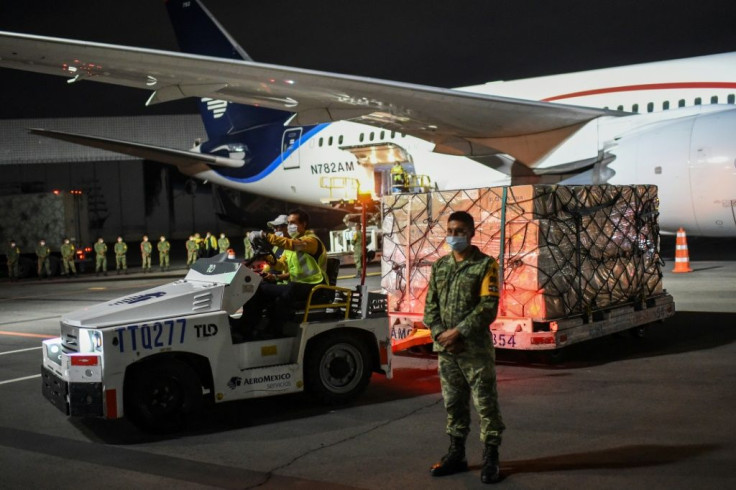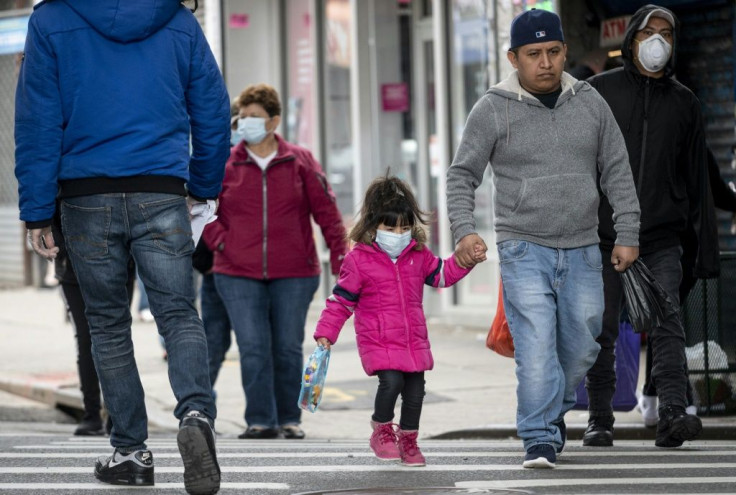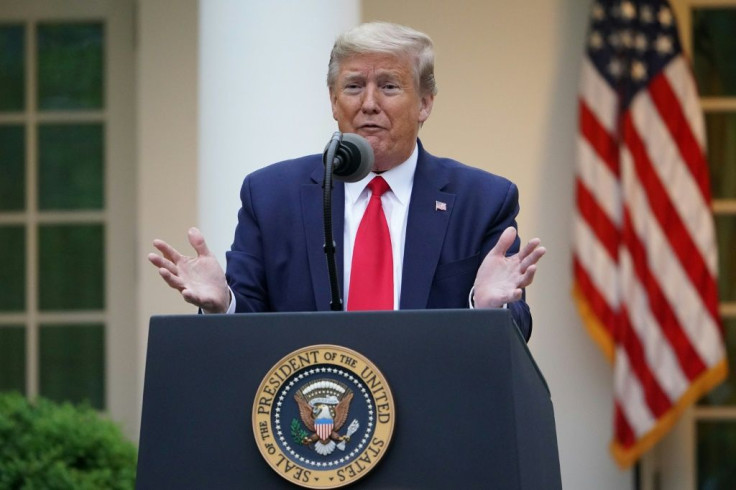Fighting WHO, Trump Hands China A PR Opportunity
With his brash move to stop funding the World Health Organization in the midst of the coronavirus pandemic, President Donald Trump may score points at home but is handing an opportunity that China is delighted to exploit.
Critics say Trump is eager to find a scapegoat as thousands of Americans die from COVID-19, even if there is broad agreement in Washington that the WHO was too eager to please China when the virus first emerged in the metropolis of Wuhan.

Trump, who has fiercely criticized UN agencies and foreign aid as part of his "America First" philosophy, said Tuesday that the United States was freezing funding to the WHO for "severely mismanaging and covering up the spread" of the virus that has sickened more than two million people.
The move came just as the United States was rejoicing that its criticism of China was gaining ground, with several countries questioning China's made-for-cameras deliveries of medical supplies, France summoning Beijing's ambassador and African nations furious over Chinese discrimination against their nationals.
China -- which offers a sliver of the more than $400 million sent to the WHO each year by Washington -- said it was "seriously concerned" that the US aid cut would weaken international cooperation, while a senior Russian official called Washington "selfish."

Brett Sc
haefer, a senior research fellow at Heritage Foundation, a conservative think tank that is usually supportive of Trump, agreed with criticism of the WHO response but said the United States had bungled the message.
The United States has already delivered most of this year's WHO contribution, so Trump's announcement makes other countries believe falsely that the decision will have a major impact, Schaefer said.

"There has been a great deal of frustration and anger expressed by a number of different countries about China's response and its role in the spread of COVID-19 around the world, and I think the president's decision diverts attention from that issue onto the decision of the United States," he said.
Schaefer said that the United States would have been better served by conditioning future WHO aid on an investigation into its COVID-19 response, as well as highlighting the $500 million in bilateral aid the United States has already promised over the virus.

The Trump administration accuses the WHO and its leader, Ethiopian doctor turned diplomat Tedros Adhanom Ghebreyesus, of failing to challenge China's initial assertions that the virus was transmitted between humans. Tedros flew to Beijing in late January and praised China as transparent.
But Trump himself had initially praised China in similar terms and in January said his administration had the virus "totally under control." Since then, COVID-19 has killed more than 25,000 people in the United States.

Derek Chollet, executive vice president of the German Marshall Fund of the United States, called the WHO announcement a "self-inflicted wound" that symbolically showed the United States stepping back from its historic leadership role.
"And to the extent that the world has been paying attention to the US's own response, the US is not looking like an ally that can be relied upon," said Chollet, who served in former president Barack Obama's administration.
"Obviously this is an attempt to try to blame China for this. It could end up playing to the Chinese advantage as they use it to make a case to the world that the US is the problem," he said.
But Chollet said it was too early to see if China's efforts would succeed and said that US allies were accustomed to Washington feuds over funding -- in which Congress can reverse course.
Senator Patrick Leahy, the top Democrat on the subcommittee in charge of State Department funding, said Trump was essentially "cutting off ammunition to an ally as the enemy closes in."
"Not wanting to take responsibility as the deaths continue to mount, he blames others," Leahy said.
"WHO could have been more forceful with China and declared a global health emergency sooner, but it is performing an essential function and needs our strong support."
Public health advocates also widely condemned the move. Bill Gates, the Microsoft billionaire who is one of the WHO's largest private funders, said that the world needed the UN body "now more than ever."
"Their work is slowing the spread of COVID-19 and if that work is stopped no other organization can replace them," Gates said.
But Trump, who is gearing up for November elections, enjoyed favorable coverage in conservative media and on the right of his Republican Party.
"Good. If the WHO wants to keep getting money from American taxpayers, it shouldn't be carrying water for the Chinese Communist Party," tweeted Representative Mark Green of Tennessee.
© Copyright AFP 2024. All rights reserved.





















